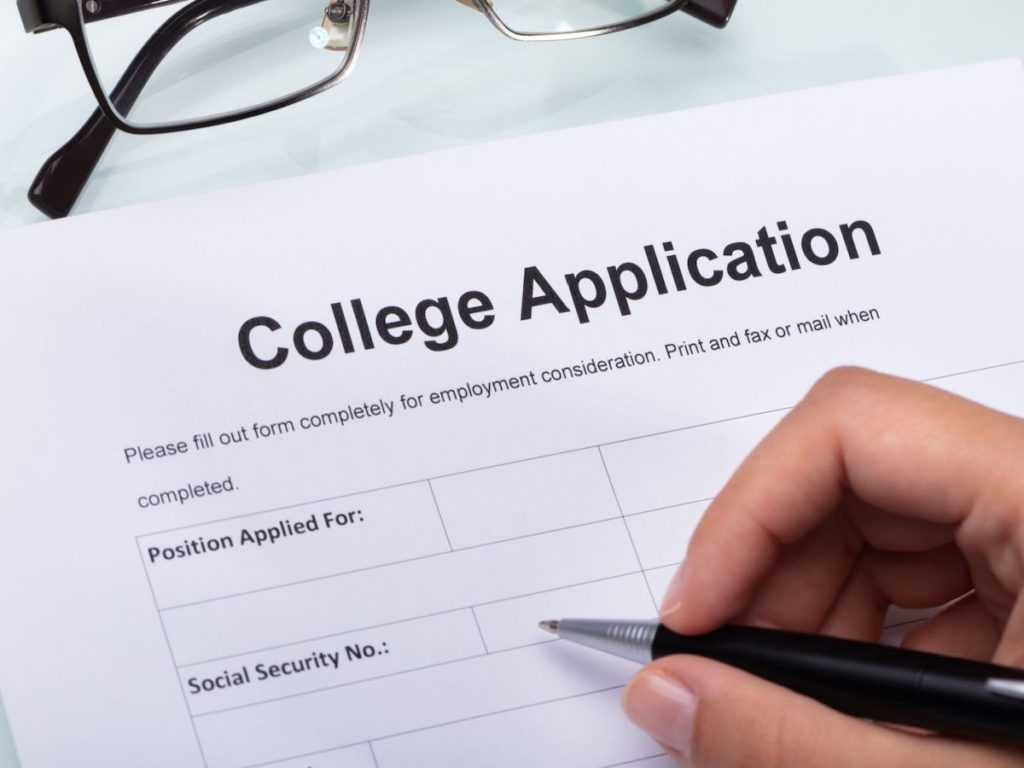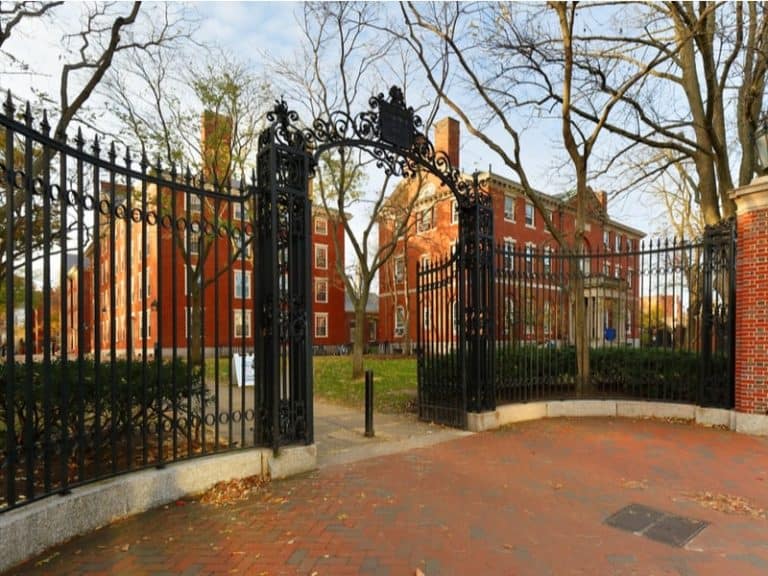How Many AP Classes Should I Take for Harvard, Yale and Princeton?
We all know just how difficult it is to get into Harvard University, Yale University and Princeton University, all of which are Ivy League schools. You will have to be an above-average high schooler if you want to earn a spot in any of these institutions. And a way to impress their admissions officers is by taking some of those college-level AP classes.
Generally speaking, students who get admitted to selective institutions such as Harvard, Yale and Princeton have 7 to 12 AP classes under their belt. Taking some of the hardest AP courses and getting high grades in them, too, increases academic rigor, which is considered in admissions at many selective postsecondary schools.
Read on prior to registering for some AP courses because you want that elusive acceptance letter.
In this post, I will talk about which AP classes you should take if it’s gaining admission to a competitive college that you are after. I will also discuss which particular AP exams will allow you to earn credits.
But first, let’s answer some pressing questions on how academic rigor and the GPA can be impacted by AP classes…

Why is Academic Rigor Considered in the Admissions Process?
Many colleges and universities put emphasis on academic rigor in the admissions process. That’s because the level of rigor of the high school curriculum is telling of a student’s strengths and talents, which are vital for academic success in college. Academic rigor also reveals the willingness of a student to push himself or herself.
GPA, class rank, standardized test scores, application essays, letters of recommendation — these are some of the academic factors taken into account in the admissions process at most institutions of higher education.
There’s also academic rigor considered by many of them.
Rigor, simply put, is the level of challenge of a class. And the more difficult the class, the more rigorous it is. And it’s because of this exactly why admissions officers check out academic rigor when reviewing applications.
Generally speaking, students who take on challenging courses are more likely to succeed in college where classes are more difficult than high school ones.
Having a rigorous curriculum reflects well on college applications in that it demonstrates a student’s willingness and ability to face academic challenges, pushing himself or herself beyond the threshold of comfort by taking some risks.
Academic rigor also allows students to develop an assortment of skills important in college such as:
- Analytical writing
- Critical thinking skills
- Data analysis
- Good study habits
- Organization skills
- Problem-solving skills
- Resilience
- Self-discipline
But it’s important to note that postsecondary institutions that take academic rigor into account also look at course rigor in the context of the high schools attended by applicants. For instance, if the high school is deemed not academically strong as others and offers very few advanced-level courses, then college admissions officers will keep that in mind.
What Impact Do AP Classes Have on Academic Rigor?
AP classes are college-level courses. As a matter of fact, they are designed to be at the same level as introductory classes in college, albeit taught to high school students by high school teachers, many of whom have undergone special training. The more difficult the AP classes, the more rigorous the high school curriculum becomes.
Registering for AP classes is one of the easiest ways to increase the rigor of one’s high school record. After all, AP classes come free of charge and there are plenty of choices available — there are a total of 38 AP courses to choose from.
So, in other words, you can boost your rigor cost-free and in many different approaches, too.
Compared to general and core classes in high school, AP classes are more challenging. So much so that they are practically the same courses taught to college students who are taking introductory-level courses. Although it’s true that there are no official AP textbooks, the ones used by AP students are usually college-level textbooks.
While they are more challenging than high school classes, AP courses are rewarding in that it allows students to improve their college application, thus increasing their admissions chances to selective colleges and universities.
And if they take AP exams, they could earn college credits, too — more on this matter in a few, so keep reading!
Other than the fact that AP classes are difficult because they are college-level classes, another thing that makes them hard is the fact that there’s a lot of material to cover.
AP courses typically take around 8 months to complete, which practically runs the entire length of one academic year of high school, with AP students spending around 3.5 per week in each class.
However, even though there’s no denying that all AP classes are harder than high school ones, not all of them have the same level of difficulty. Needless to say, some are simply harder than the rest.
This is why the harder the AP classes you take, the more rigorous your high school curriculum becomes.

Do AP Classes Affect High School GPA?
Because AP classes are weighted, they can increase the GPA of a high school student. As a matter of fact, taking AP classes allows a high schooler to get a cumulative GPA that’s higher than 4.0. Compared to honors classes which usually add 0.5 to one’s high school GPA, AP classes usually add 1 point to the GPA.
We have established by now that taking AP courses in high school can help increase your chances of getting accepted to a college that considers the level of academic rigor in the admissions process.
But there’s another way registering for AP classes can boost your admissions chances: by increasing your GPA.
Everyone knows that the GPA is the single most important factor in the college admissions process.
So much so that, at some of the largest institutions of higher education in the land, some admissions decisions may be made based on the GPA solely. It goes without saying that your high school GPA has a huge impact on which colleges will accept you.
Some postsecondary institutions take a look at an applicant’s unweighted GPA, while others prefer to take a look at the weighted GPA. But then there are also schools that consider both unweighted and weighted GPAs.
And this brings us to this pressing question…
What’s the difference between unweighted GPA and weighted GPA?
Simply put, an unweighted GPA calculates a high school student’s overall average grade out of 4.0 with complete disregard for the difficulty level of coursework. On the other hand, a weighted GPA takes into account not only the class grades but also course levels, which is why the overall average can be as high as 5.0.
Whether the unweighted GPA or weighted GPA is more important will depend on the college.
Between them, it’s the unweighted GPA that’s trouble-free to compute. That’s because deriving it is as simple as adding all of the grade points together and then dividing the sum by the number of all courses.
Easy to compute, yes.
However, it’s not fair to high schoolers who took AP classes, especially some of the most challenging AP classes, because the rigor of curriculum is not taken into account — in an unweighted GPA, high school courses are given the very same regard as their much more difficult college-level counterparts.
And it’s exactly due to this why many high schools use a weighted GPA.
Unlike the unweighted GPA, the weighted GPA considers not only how well a high schooler did in each class but also the overall difficulty of courses he or she took. Instead of a maximum of 4.0, the maximum weighted GPA is 5.0.
Well, that’s true in most instances. You see, different high schools calculate weighted GPAs differently, which is why you may come across a weighted GPA that’s as high as 5.3 or 6.0 or even 10.0 at times.
It’s a good thing that colleges that consider weighted GPAs recalculate them during the admissions process to put all applicants on a level playing field.
Since most schools usually add 1 extra point to the grade for every AP course taken, it’s no wonder that the AP program can help increase your GPA, which can then boost your chances of getting admitted to college.

Which AP Classes Look Good for Colleges?
High school students who are looking to get admitted to some of the most selective colleges and universities should consider taking some of the hardest AP classes. It’s also a good idea for them to take those that have something to do with what they want to study as well as non-core courses that they find interesting.
As a general rule of thumb, the more competitive the institution of higher education you would like to attend, the more challenging the AP courses you should take throughout your high school career.
Having a few hard AP classes is better than having many different easy ones.
It goes without saying that the most difficult AP classes are in the sciences and math and computer science. But there are also a handful of them under the history and social sciences category.
Based solely on the percentage of high school teeners who scored 3 or higher in the exams, the following are the top 10 most challenging of all AP courses:
| AP Course | Percentage of Students Who Scored at Least 3 |
| AP Physics 1 | 43.30% |
| AP United States History | 48.20% |
| AP Government and Politics United States | 48.60% |
| AP Macroeconomics | 51.80% |
| AP Human Geography | 53.20% |
| AP Japanese Language and Culture | 53.50% |
| AP Environmental Science | 53.80% |
| AP Chemistry | 54.00% |
| AP English Language | 55.70% |
| AP Calculus AB | 55.70% |
But it doesn’t necessarily mean that you should register for the most difficult AP classes your high school is offering simply because earning a bachelor’s degree at a highly selective college is what you want.
If the goal is to make your application look attractive to some of the hardest-to-please admissions officers on the face of academia, then it’s not enough that you opt for challenging AP classes many high schoolers dodge — it’s also important that you go for difficult AP courses that have something to do with the area of study you wish to focus on in college.
For instance…
Planning on getting into a selective engineering program?
Some of the best AP classes to go for include AP Calculus AB, AP Calculus BC, AP Computer Science Principles, AP Physics 1, AP Physics 2, AP Chemistry and AP Biology.
On the other hand, AP Macroeconomics, AP Microeconomics, AP English and AP Psychology are great for a business program.
Don’t be afraid to take easy AP courses you are interested in as they can speak volumes about your interests.
Which AP Classes Do Harvard, Yale and Princeton Want?
Harvard University, Yale University and Princeton University are highly selective schools and therefore have a preference for students who have taken advantage of all the opportunities available to them in high school, such as AP courses. Needless to say, these Ivy Leagues consider academic rigor in the admissions process.
Some of the hardest colleges and universities to get into are Ivy League institutions.
With acceptance rates ranging from 4% to 5% only, it’s a definite must for your application to be a complete standout for you to receive an offer to enroll from Harvard, Yale or Princeton.
It goes without saying that having a rigorous curriculum can spell the difference between getting an acceptance letter and a rejection letter.
And as anyone who would like to gain admission into them would expect, these elite institutions would like to see some of the most challenging AP classes available for hopefuls to opt for.
Generally speaking, admissions officers at selective schools such as Harvard, Yale and Princeton usually have a preference for applicants who have taken anywhere from 7 to 12 AP courses — it is said that around 80% of high schools in the US offer some type of AP class, and the average number of AP class they have is approximately 8 classes.
The number of AP classes you should take for increased admissions chances can vary from college to college.
Unfortunately, none of the Ivy Leagues say just how many AP classes aspirants should take if they want to increase their chances of getting admitted.
But they do give the rigor of high school curriculum the following relative importance:
| School | Relative Importance |
| Harvard University | Considered |
| Princeton University | Very important |
| Yale University | Very important |
Among the 3 prominent schools, Harvard puts the least amount of weight on academic rigor.
But it’s important to point out the fact that the Cambridge, Massachusetts-based school has the very same relative importance for each and every academic and non-academic admissions factor, from GPA to recommendations and from extracurriculars, interview to work experience.

Do Harvard, Yale and Princeton Give Credits for AP Exams?
Harvard University, Yale University and Princeton University give credits for certain AP exams, in particular some of the most difficult ones. The number of credits these Ivy Leagues award range from as low as 1 to as high as 8, of course depending on the score obtained by the student in each of the accepted AP exams.
Taking AP classes is highly recommended for high schoolers who are looking to receive acceptance letters from some of the most selective colleges and universities where academic rigor is considered in the admissions process.
On the other hand, sitting for AP exams allows them to earn credits.
But don’t start registering for all the AP examinations, which cost $97 each, that you want — Harvard, Yale and Princeton as well as many other postsecondary institutions only give credit to certain AP tests. And it’s precisely because of this why you should check beforehand which AP exams your dream school gives credits to.
However, it’s not enough that you take AP exams a college accepts for the purpose of awarding credits — it’s also a must that you earn the minimum score required for you to earn credits and skip some introductory courses in college.
At many institutions of higher education, having a minimum score of 3 in accepted AP exams is enough for you to win credits.
But since we’re talking about HYP (Harvard, Yale and Princeton), which are no ordinary schools in terms or selectivity level and reputation, getting a minimum score of 4 or 5 is what students looking to get credits must aim for.
Harvard, by the way, wants to see nothing but a score of 5 in each accepted AP examination!
Let’s take a look at the various AP exams Harvard gives college credit to as well as the minimum score you will have to get each AP exam in order to earn the corresponding number of credits:
| AP Exam Name | Score Required | Number of Credits |
| AP Art History | 5 | 8 |
| AP Biology | 5 | 8 |
| AP Calculus AB | 5 | 4 |
| AP Calculus BC | 5 | 8 |
| AP Chemistry | 5 | 8 |
| AP Chinese Language and Culture | 5 | 8 |
| AP English Language and Composition | 5 | 4 |
| AP English Literature and Composition | 5 | 8 |
| AP European History | 5 | 8 |
| AP French Language and Culture | 5 | 8 |
| AP German Language and Culture | 5 | 8 |
| AP Italian Language and Culture | 5 | 8 |
| AP Japanese Language and Culture | 5 | 8 |
| AP Latin | 5 | 4 |
| AP Macroeconomics | 5 | 4 |
| AP Microeconomics | 5 | 4 |
| AP Physics C: Electricity and Magnetism | 5 | 4 |
| AP Physics C: Mechanics | 5 | 4 |
| AP Psychology | 5 | 4 |
| AP Spanish Language and Culture | 5 | 8 |
| AP Spanish Literature and Culture | 5 | 8 |
| AP Statistics | 5 | 4 |
| AP United States History | 5 | 8 |
On the other hand, the following are the scores you will have to get in the various AP exams accepted by Yale if you want to get college credits for a job well done in high school:
| AP Exam Name | Score Required | Number of Credits |
| AP Art History | 5 | 1 |
| AP Calculus AB | 5 | 1 |
| AP Calculus BC | 4 | 1 |
| AP Calculus BC | 5 | 2 |
| AP Chinese Language and Culture | 5 | 2 |
| AP English Language and Composition | 5 | 1 |
| AP English Literature and Composition | 5 | 1 |
| AP French Language and Culture | 5 | 2 |
| AP German Language and Culture | 5 | 2 |
| AP Italian Language and Culture | 5 | 2 |
| AP Japanese Language and Culture | 5 | 2 |
| AP Latin | 5 | 2 |
| AP Music Theory | 5 | 1 |
| AP Physics C: Electricity and Magnetism | 5 | 1 |
| AP Physics C: Mechanics | 5 | 1 |
| AP Spanish Language and Culture | 5 | 2 |
And now, let’s check out the different AP exams you can take to earn college credits as an undergraduate student at Princeton student as well as the minimum score you need to get in each one:
| AP Exam Name | Score Required | Number of Credits |
| AP Biology | 5 | 2 |
| AP Calculus AB | 5 | 1 |
| AP Calculus BC | 5 | 4 |
| AP Chemistry | 4 | 1 |
| AP Chemistry | 5 | 2 |
| AP English Literature and Composition | 5 | 1 |
| AP European History | 4 | 1 |
| AP French Language and Culture | 5 | 2 |
| AP German Language and Culture | 5 | 2 |
| AP Italian Language and Culture | 5 | 2 |
| AP Latin | 5 | 2 |
| AP Macroeconomics | 5 | 1 |
| AP Microeconomics | 5 | 1 |
| AP Physics 1 | 5 | 2 |
| AP Physics 2 | 5 | 2 |
| AP Physics C: Electricity and Magnetism | 5 | 2 |
| AP Physics C: Mechanics | 4 | 2 |
| AP Physics C: Mechanics | 5 | 2 |
| AP Spanish Language and Culture | 5 | 2 |
| AP United States History | 4 | 1 |
| AP World History: Modern | 4 | 1 |
Just Before You Register for AP Classes for Admission to Harvard, Yale or Princeton
Like many institutions of higher education in the US, including most especially the most selective ones, Harvard University, Yale University and Princeton University all consider academic rigor in the admissions process.
And a way to increase the level of rigor of your high school curriculum is by taking some AP classes.
When registering for them, pick difficult ones that can impress your top-choice school’s admissions officers.
But don’t be too shy to also take some of those that you are interested in or passionate about for you to become a well-rounded student with an above-average college application. And if the goal is to earn college credits, taking challenging AP exams is the way to go.
Disclaimer: The views and opinions expressed in this article are those of the authors and do not necessarily represent those of the College Reality Check.





